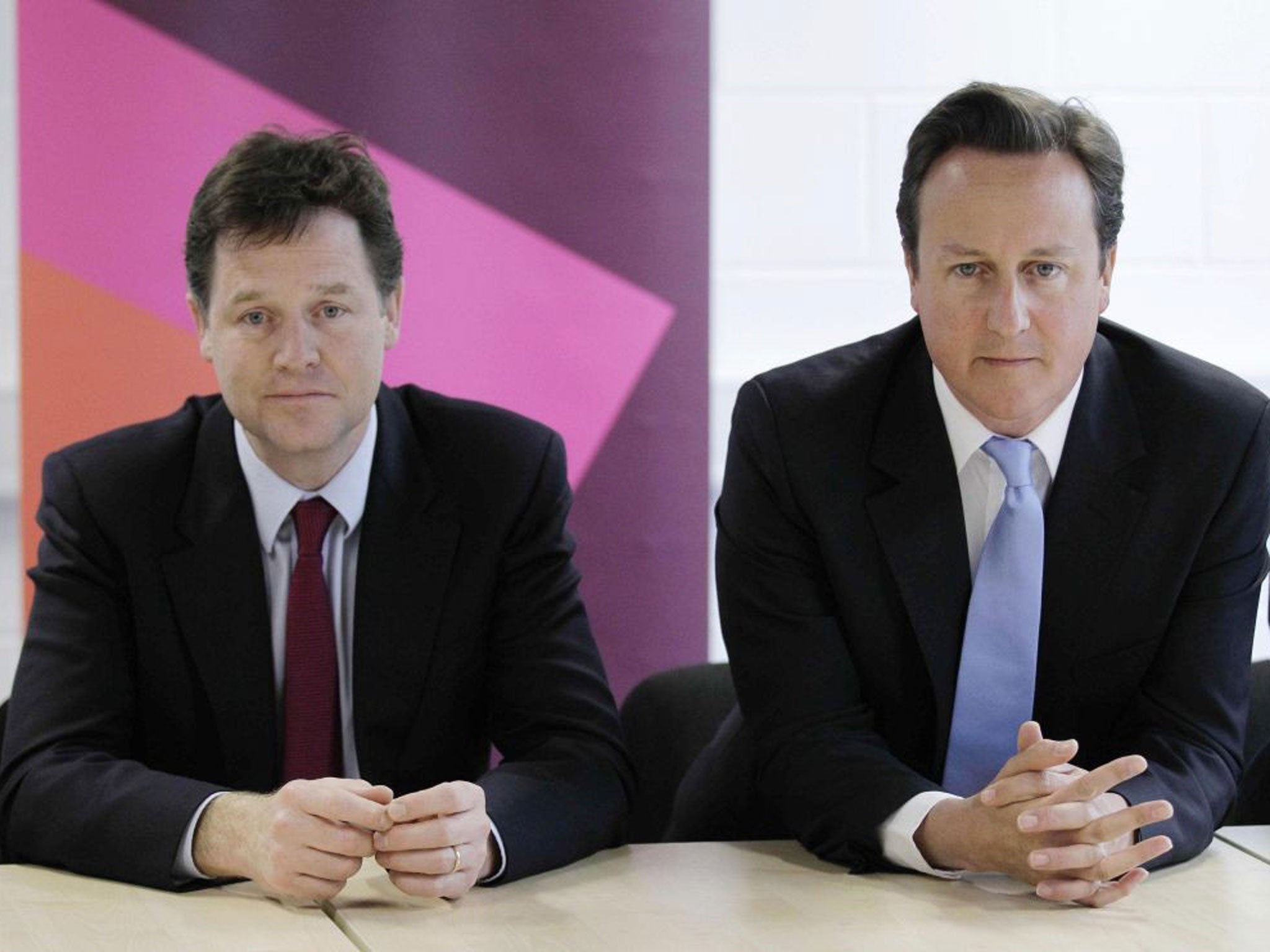Everyone was wrong about the will of Joan Edwards
There is an answer, but nobody paid enough attention to find it

There is nothing as entertaining as a dispute in which all sides are wrong. Such was the bizarre political row that broke out last week over the will of Joan Edwards. The right answer depends on the interpretation of our unwritten constitution.
Miss Edwards was a retired nurse who chose to leave her estate of £520,000 to “whichever Government is in office at the date of my death for the Government at their absolute discretion to use as they think fit.”
The first anybody knew about it was when the money popped up in the public listings of donations to the Tory and Liberal Democrat parties. The Mail on Sunday broke the story under a startlingly tendentious headline: “Grasping politicians pocket spinster’s £500,000 legacy.”
It emerged that there had been some talks between the Treasury Solicitor and the executors of the will, a firm of lawyers. They interpreted “the Government” as the political parties in power, and the money was paid to them. Why is it “grasping” to accept a legacy? That is a mystery. The sad thing is that politics is held in such low esteem that the phrase “grasping politicians” trips naturally off the keyboard of a hack in search of a plausible stereotype.
Be that as it may, the inevitable rent-a-quotes sprang into action, demanding that the money be extracted from the party coffers, on the grounds that Miss Edwards must have intended it to be spent on schools ’n’ hospitals and all the other worthy objectives of government, not on party political campaigning. How they knew what was in the mind of the deceased Miss Edwards is another mystery. However, they won the day, and in the face of a medium-strength media storm the shamefaced Tories and Lib Dems paid the money to the Treasury.
But we are left with the biggest mystery of all: what on earth does the will mean? It is badly drafted, and fails to choose between two possible meanings of the word “government”.
On the one hand there is the Queen’s Government, the apparatus of state power through which the country is governed by a politically impartial Civil Service. This is what Americans mean when they talk about “the Government”. The rent-a-quotes took it for granted that this is what Miss Edwards must have meant.
But how can she possibly have meant that? For the Government in that sense is an eternal, continuing entity. In that context the words “whichever Government is in office at the time of my death” simply make no sense. In that sense, it is always the same government. She must have meant the Government in the other sense.
This is what Americans call “the Administration”, the politicians who currently run the Queen’s Government. That is what we mean when we speak of the Thatcher government, the Blair government, or the current Coalition Government.
But is the Government in this sense the same thing as the political party or parties from which its members are drawn? Well, pace the Treasury Solicitor, I would say plainly not.
Why? Because of how it comes into existence, and how it dies. A government is born when the Queen sends for an MP and asks him or her to “form a government”. This person is nearly always the leader of the biggest party in the House of Commons. Why? Because “the Queen’s business must be carried on”, and it cannot be carried on without money. That money comes from taxation, and it has been a settled rule for at least 600 years that no tax can be raised without the approval of the House of Commons. (That fact, much more than Magna Carta or anything else, is the bedrock of English, and latterly British, liberties. Charles I lost his head for trying to worm his way out of it.) So the Queen’s business can be carried on only by people who can command a majority in the Commons. That is where the political parties come in – delivering the votes to keep the taxes flowing and thus keep the Government in office.
So the new Prime Minister sets to work to “form a government”. That is, to appoint about 100 MPs and peers to “government jobs”, ranging from the Great Offices of State (Chancellor, Foreign Secretary, Home Secretary, Lord Chancellor) down to the humblest Parliamentary Under-Secretary of State in the Department for Work and Pensions.
And what happens if “the Government falls” after losing a vote of confidence in the Commons? Does the Queen abdicate? Are the great Whitehall departments closed down? Is the sacked Prime Minister’s political party wound up? Of course not. There doesn’t even have to be a general election, although there will be if nobody else can be found to “carry on the Queen’s business” with the existing House of Commons. No, the only thing that must happen is that the Prime Minister and his or her ministerial colleagues are thrown out of office and replaced. They are the Government.
Which leads us back to a very curious conclusion about the will of Miss Joan Edwards. We do not know what she intended. We can only try to construe the meaning of her words. And the words “whichever government is in office at the date of my death” can only mean the politicians who occupied the various ministerial posts at that date. The money should have been paid to them personally.
But, heavens, what would The Mail on Sunday have said about that? The smart thing to do would have been to accept the money, put it in a pot and run an internet referendum to ask the public what it should be spent on.
Join our commenting forum
Join thought-provoking conversations, follow other Independent readers and see their replies
Comments
Bookmark popover
Removed from bookmarks